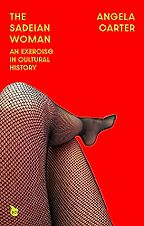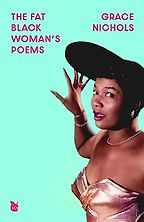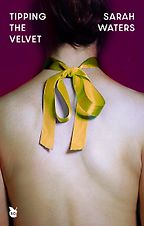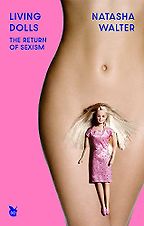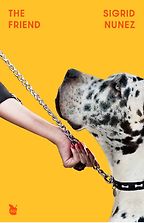Before we get to the books you’ve chosen for the 50th anniversary, for those who don’t know it could you tell me about Virago Press?
Virago Press was founded as a feminist publisher 50 years ago, during the second wave of feminism and all the social and political change of the 1970s. It was born of the idea that women’s writing should be taken more seriously and published, packaged, and promoted with the same energy as writing by men and it should be widely read.
It was founded by a group of women led by Carmen Callil (who, sadly, passed away last year). Carmen was an entrepreneur, a businesswoman, and she wanted to sell lots of books and have them widely read. Virago grew out of Spare Rib magazine, the feminist magazine founded by Marsha Rowe and Rosie Boycott, and was indeed briefly called Spare Rib Books. There was a lot of magazine and book publishing around the feminist movement in the 70s. Out of those feminist publishers, Virago is the only press that still exists. That’s not to say that the others didn’t make a huge impact.
Carmen often spoke about taking voices, stories and writing from the margins and bringing them to the center. Our mission remains the same. Now, fifty years on, we remain very proudly and staunchly a feminist publisher.
Something else that has endured from the beginning is the idea of breadth. The idea was never just to publish books about feminism, politics, or women’s lives; it was to reflect the entire breadth of what our writers wanted to write about—be that poetry or humor or polemic or fiction or history. That remains important and is reflected in the five books that we’ve chosen. Virago was founded as a women’s press, but more recently, as part of our commitment to a more inclusive feminism, we also publish writers of underrepresented genders. That’s part of our mission today.
Do you feel that there’s as much need for a feminist press as there was fifty years ago?
Yes. It’s a valid question, and one that we’ve been asked since the very beginning. Lennie Goodings, our Chair, recently published a memoir about her time at Virago called A Bite of the Apple. She writes about a press conference to announce Virago’s first full season of publishing. A reporter put up his hand and said, ‘Surely this is it? How are you going to find books for next season?’
Especially in the last ten years, there’s been a real renaissance in feminism and feminist publishing, but VIDA publishes statistics every year about gender and publishing and it’s still skewed. Books by men still get much more critical and prize attention. I’ve also seen investigations saying that women writers and writers of color are paid less. It’s very hard to measure these things, but books by women are still thought of and packaged and published in a particular way. Often their stories—whatever genre they are—are assumed to be individual and autobiographical and personal and particular, whereas stories by men and about men are still seen as more human or broad or general. How many books by women are thought of as the Great American Novel?
Things are getting better, but I think there is still a need for feminist and activist publishers. To give an example I use quite often, in the 1980s, Virago was the only publisher in the UK who was interested in publishing Maya Angelou. According to Angelou, every other British publisher passed and said, ‘People in Britain aren’t interested in the story of this poor Black girl from the South.’ Virago took a chance on it, and it’s still a hugely influential book and a massive bestseller for us every year.
“We see things differently sometimes”
There are still books we are the only press to think, ‘This is a book that can be read by lots of people. It’s not a niche book. It’s not something for the margins; it’s something that we can bring to the center.’ I do think there still are imbalances and discrepancies and stereotypes in publishing and writing that we can help combat.
But it is something that we think about. What are we doing that’s different and special? I was at the Nibbies, which are the trade awards, a couple of months ago. Carolynn Bain won the Individual Bookseller of the Year award. She runs Afrori Books, which promotes books by Black writers, and she stood up and said, ‘I hope that we don’t need to exist at some point in the future.’
So in terms of the books you’ve chosen for these Virago Gold Reads, you’ve picked them from across this 50-year history?
Yes. We wanted to choose an iconic book from each decade. The five books reflect our history, our particular approach to publishing and who we publish. We wanted them to reflect feminism and the different waves and aspects of feminism. The range and breadth of our list was also important to us when we were choosing them.
Let’s start with the book from the 1970s, which is Angela Carter’s The Sadeian Woman. Tell me about it and why this is the book you chose for that particular decade.
The personal and the political is a theme that runs through all of these books, and this is exactly what Angela Carter was writing about, back in the 70s, in The Sadeian Woman. It’s partly polemic about pornography and prostitution, it’s partly literary history and history about the Marquis de Sade and his writings. She’s really exploring whether you can have sex that is divorced from politics and history and the power dynamics around you.
People are still talking about that all the time, and I think that dilemma—that tension between the personal and political—is always central to feminism. This book was written long before the internet existed, but because of the widespread availability of pornography online, it’s absolutely fascinating to read now. It feels so resonant.
Angela Carter is such an important part of Virago’s history. When we talk to writers who want to be published by us, or when we talk to people who want to work at Virago, hers is the name that comes up over and over again. A lot of us read and admired The Right to Sex by Amia Srinivasan, which came out recently. There’s so much discussion at the moment about sex and power and pornography and prostitution—or sex work, depending on your views. We felt The Sadeian Woman was a great choice because it was part of those discussions in the 1970s on how the second wave approached those issues, but it feels so up to date. It’s surprising; it’s provocative. You can’t help but find something challenging on every page.
In terms of genre, would you call it a polemic?
I thought about this really hard because you can classify it in so many ways. There is polemic in there, but it’s grounded in literary history and history as well. It’s slightly hard to categorize. As the publisher, we get to decide, and I put it down as cultural criticism in the end.
Let’s go on to the 1980s now, where you’ve chosen The Fat Black Woman’s Poems by Grace Nichols, who was born in Guyana but has been in Britain since 1977. Tell me about this poetry collection and what’s good about it.
This book has always been a real in-house favorite. In terms of thinking about what Virago does well, we always have excellent writing and we like to publish things that are provocative, funny, and surprising. This book is all of those things.
There’s a poem in here called “Spring”. It’s about having been quite ill and scared over the winter and venturing out into the spring. The last three lines are: “I unbolted the door and stepped outside/only to have that daffodil baby/kick me in the eye.” She’s expecting spring to be all soft and lovely, but the daffodil kicks her in the eye after this difficult winter. I think that this collection, although it’s filled with beauty and laughter, also does kick you in the eye sometimes. Even the title is quite provocative. The first poems are about beauty and reframing our ideas about it. It’s reframing the idea of who the fat black woman is or could be, and how we look at her.
It’s an amazing book of poetry, and it feels so central to what we do. We no longer publish any poetry on the frontlist—mainly because being a poetry editor is quite a specialist thing—but we really love the poetry on our backlist. We have Grace Nichols; we have some Maya Angelou; we have Anne Carson. We have incredible poets and this is something that we thought would be great to have as part of the Five Gold Reads.
Another thing that made this book special for me is that we ran a reading group in conjunction with Women for Refugee Women, which is a charity that our author Natasha Walter set up. We read some of these poems in that reading group with women refugees from all over the world. That was a really amazing reading group, so these poems have a special resonance for some of us as well.
Next up is Tipping the Velvet by Sarah Waters. This represents the 1990s, but it’s a historical novel set in the Victorian era (and has been recommended on Five Books as one of the best historical novels).
There was no question that we were going to have a Sarah Waters novel on this list. She is absolutely core to Virago, another writer always mentioned by people who want to work here, including me. I just work here so I can get an early proof of her next book! We had to have her on the list, and it made sense to start at the beginning, with Tipping the Velvet.
She wrote an afterword to the book quite recently, and a lot of what she writes there is why we wanted to include it. She wrote this novel because there wasn’t much fiction where she saw herself. Not that she was a 19th-century music hall star, but in terms of having LGBTQ+ characters at the center of a blockbuster novel that is read by hundreds of thousands of people.
It’s that idea of taking stories from the margins and putting them in the center. We’ve always wanted to have untold stories—the kind she’s telling about drag kings in music halls (who were called mashers) and the queer side of London. Whether it’s very poor sex workers or incredibly wealthy women who drive around in carriages plucking urchins from the streets or a working-class lesbian couple, there are all these people in the book who had rarely been represented in mainstream fiction. For all those reasons, it felt like a really important book for Virago, especially in terms of LGBTQ representation.
Some people think, ‘What’s a feminist novel?’ or ‘How can you have feminist fiction?’ Sarah’s a great example of that. She is telling untold stories and uncovering hidden histories, but she’s an incredible storyteller as well. Most of her fan mail comes through us, so we see all the people for whom this book has meant so much. People have such an intimate relationship with her work. One of my close friends named both of her daughters after characters in this book. My daughter has a very unusual name, Zena, and there’s a Zena in this book.
When we were starting to plan our 50th anniversary, we looked through a lot of our marketing material for the past 50 years, and we found the catalog in which Tipping the Velvet was listed. Sarah Waters is now a superstar writer, published all over the world and shortlisted for major prizes, and it was amazing to see her first outing.
Now we’re back to a work of nonfiction. This is Living Dolls by Natasha Walter.
This book came out in 2010, which was the beginning of a wave of feminist publishing. Caitlin Moran’s How to Be a Woman came out not long after. It was the start of this incredible explosion of feminist publishing after it had been in the doldrums for ten or fifteen years. When this book came out, a lot of people said, ‘We’re in a post-feminist world. Why do we need this book?’ Similar to Backlash, it really marked a moment of saying, ‘We really need feminism again.’
Natasha’s book is, again, about the personal and the political. Before she wrote this book she had believed, ‘We’ve advanced far enough in feminism that what people do in their personal lives—who they have sex with, how they have sex, what they wear—is irrelevant. We should be focusing on pay and legislation.’ But, as she says in the subtitle, she saw this return of sexism, this increase, on the one hand, of choice and freedom and liberation, but on the other, of women being funneled down this increasingly narrow chute of what it is to be desirable, what it is to be sexy.
She’s making the argument that it’s partly about pornography, so we’re back to Angela Carter. It’s so interesting to read these two books alongside each other. They really speak to each other. Angela Carter is a feminist. There is feminist polemic in her book, but it’s also cultural criticism. Living Dolls is a full-on book about feminism and politics. It really bears rereading, especially thinking about technology. This book was written when online pornography was starting to get really huge, but it was before social media properly began. Smartphones had only been around for a little while.
I read this book when it came out and I reread it recently. Although it was only 13 years ago, it’s fascinating to read as a historical document. Part of me thinks, ‘Wow, a huge amount has changed for good in the last 13 years.’ There’s been such an incredible flourishing of feminist activism online and in other places. But part of me feels depressed because some things are worse. The book bears rereading in lots of different ways. It still feels relevant.
What’s the significance of the doll?
A lot of the book is about how women are being told or believing that they’re making decisions about their bodies, what they look like, and how they display their sexuality. It’s their choice. It’s freedom. But, actually, lots of forces are making them feel like they need to look like Barbie.
Five Books interviews are expensive to produce. If you're enjoying this interview, please support us by donating a small amount.
We’ve kept the cover image from the original publication because it felt hard to beat. The image is playing with the physical ideals that you get from pornography—this aesthetically perfect, white, slim woman who I don’t think has ever had kids and is fully waxed—and the Barbie hair.
Your fifth choice is a novel by Sigrid Nunez, The Friend. Is it specifically a feminist novel? Tell me more.
Interestingly, this book was published in America in February 2018. It was written before Me Too but came out about six months after the Weinstein story broke. The main relationship in the book is a triangle. A woman writer has had this very long-term friendship with a problematic older male writer. At the beginning of the book, he commits suicide. He doesn’t leave a note, and the only instruction that he’s left is that he wants our narrator to take care of his Great Dane. Unfortunately, she’s in a tiny Manhattan apartment, and she’s not allowed to have a dog. The dog is in mourning for his master, and so is she. She and this dog are heartbroken. It’s a love triangle, a grief triangle, between the three of them.
It becomes about her thinking about her friendship with this man who she knows has, quite unashamedly, slept with lots of his students. It was consensual, but there’s a power differential—he was a professor. He would say, ‘Teaching is erotic. This just happens.’ She confesses she actually slept with him too, but at the very beginning of their relationship. He’s had multiple wives and affairs. I remember reading it and checking the publication date thinking, ‘Wait! This can’t have been written before Me Too, but it’s straight into that debate.’
Sigrid has a lot of links with Angela Carter, in that neither of these writers is toeing the party line. Sigrid is unafraid to ask questions. Her narrator dearly loved this friend, and she’s not sure whether to condemn him or not. The narrator in the book has plenty to say about very judgy millennial and Gen Z students not wanting to encounter artists that they think are immoral. Like Angela Carter she has a lot of interesting things to say about the personal and the political. Can you separate the artist from the art? Can you separate the teacher from the seducer? And because the narrator has such mixed feelings about this man, he’s quite charismatic on the page.
It’s a complicated book. It raises a lot of questions. I had lots of debates with my friends who’ve read it, about whether or not she lets the male writer get away with too much. You may see the dog on the cover and ask, ‘Is this a feminist novel?’ But yes, I would argue it is.
There are a number of reasons we wanted to include it as one of our Five Gold Reads. We publish a lot of English writers from around the world. Sigrid is American, so it felt good to have an American writer on the list. Sigrid’s first novel was published in the UK in the early 1990s, and she hadn’t been published here since. We published The Friend in 2018. It was her seventh book. I think that’s something we do well. We pick up writers who are mid-career and maybe haven’t been published in this country for a long time or maybe need a reinvention. Again, we see things differently sometimes.
Five Books aims to keep its book recommendations and interviews up to date. If you are the interviewee and would like to update your choice of books (or even just what you say about them) please email us at [email protected]


